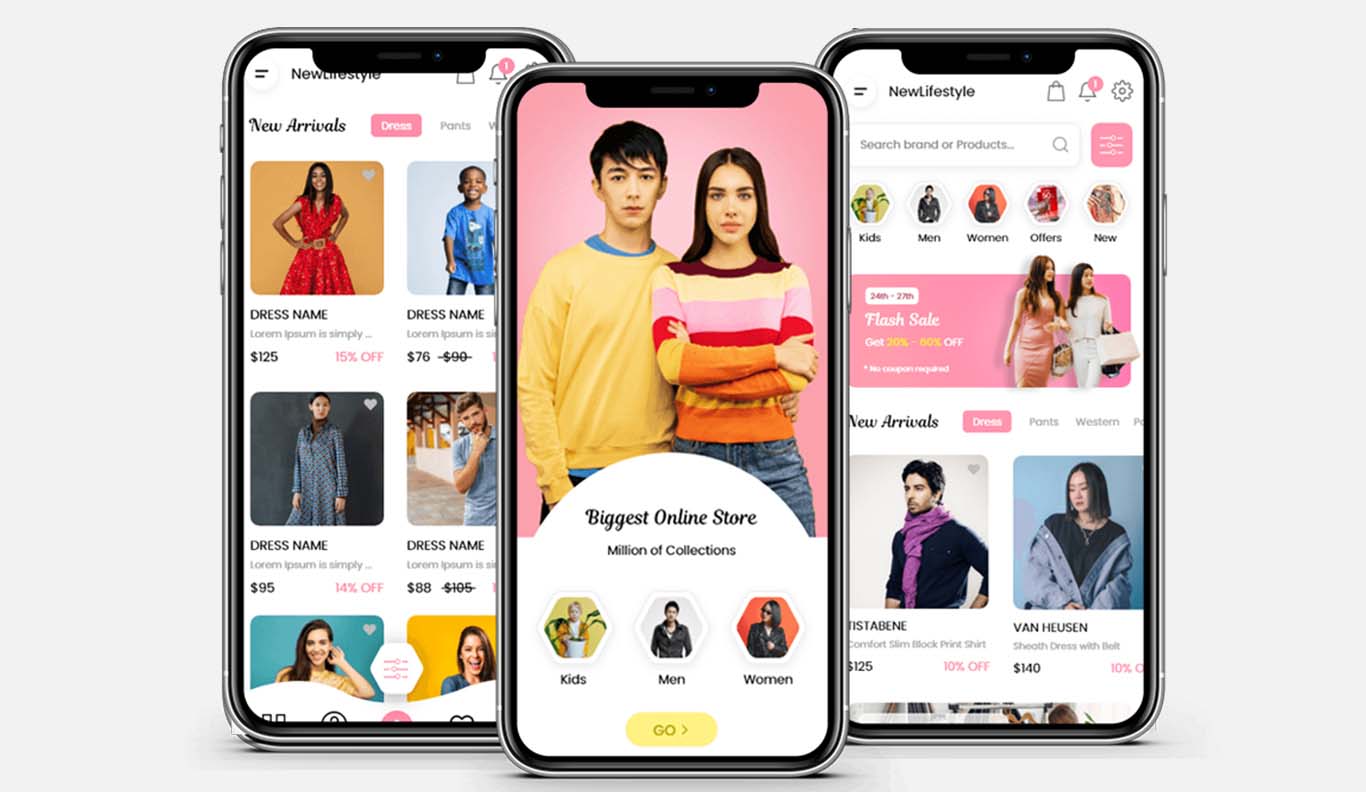Somewhere in India’s rural town, a housewife struggles to pay her electricity bill online using her smartphone. After hours of hassle, she finally gives up and jumps on to her social media apps. Surprisingly, she scrolls her way through three different apps without a hitch!
This ‘social media comfort’ and its ever-growing base was together mixed with e-commerce popularity by start-up Meesho, which ‘double tapped’ this billion dollar opportunity six years back.
E-commerce has been relentlessly making inroads in every corner of the country, providing small businesses and entrepreneurs a platform to buy and sell. The convergence of social media with the same pushes the success rate, convenience and most importantly adoption of such platforms. Imagine if you give a platform to an aspiring entrepreneur housewife to buy, sell or resell products through a medium she is most comfortable, familiar and connected with.
This has given rise to “social commerce”. In simple terms, it means selling products directly through social media networks and Meesho stands at the top of this game in India.
Bringing Business in ‘Social’ Culture
In social commerce, the buyers are connected with the sellers via social media and can directly interact with them. The former can make a deal by interacting on various social media platforms like Instagram, Facebook and WhatsApp.
According to a report by Bain and Company, the social commerce market in India was estimated to be at $2 Billion in 2020 and is aimed to hit $16-20 Billion in 2025. This meteoric rise is credited to the smartphone penetration across the country, especially Tier 2 and Tier 3 and the declining cost of mobile internet. There are about 400 million internet users in the country and the number is ascending by seconds. This has been complimented with the parallel growth of payment gateways and its adoption.
Hence, the opportunity to enter ‘anything digital’ has never been so ripe. Vidit Atrey and Sanjeev Barnwal planned to combine the two opportunities — social media and e-commerce— and hence the inception of brand Meesho.
Meesho had, however, culminated out of another start-up started by the duo, called Fashnear.
In 2015, India was witnessing a rise of “e-shops”, an online business that sells a variety of products and services. They were just like any other retail store, but online. The duo came up with a similar hyperlocal online platform/store for fashion and named it Fashnear, which unfortunately did not see success. The founders started working on a prototype to let offline retailers sell through social media platforms. Thus Meesho (Meri-shop) was born.
‘‘
E-commerce has been relentlessly making inroads in every corner of the country, providing small businesses and entrepreneurs a platform to buy and sell.
Creating ‘Digital Entrepreneurs’
According to the founders, the most special thing about Meesho platform/app is that it allows any person to be an entrepreneur without any investment, from the comfort of their homes. It’s a ‘zero investment’ proposition which creates ‘digital entrepreneurs.
How does the app work? To begin with, starting a business on Meesho app doesn’t require any investment or qualification. The start-up follows the concept of reselling. Once the user enters the app, there is a well-established catalogue of products ranging from clothing to kitchen equipment. All a user needs to do is resell those products to their contacts by sharing the catalogue to friends, family or others on various social platforms such as WhatsApp, Facebook, Instagram, Twitter and generate sales. A commission is earned on every order besides bonuses.
Users also have the option of listing their own products by enrolling into Meesho’s seller account following which they can broadcast themselves on various online social groups and start earning.
Building this app was not easy. Like every start-up, Meesho founders had their share of struggle during the initial days, right from developing the app to deciding on the language. But every decision they made, it was taken in the direction of creating a ‘user-focussed’ business. The start-up wanted to reach out to as many sellers as possible during their early stage itself to get the head start without any risk.
Around 10% of Meesho users are influencers on Instagram and Youtube who are able to make a handsome income by reselling products on the platform. A large chunk of their users also consists of women and students, who are usually very active on social media and are thus able to leverage the opportunity, following small store owners in Tier 2 and Tier 3 cities.
In an interview with Y-Combinator, a California-based seed accelerator, Aatrey had mentioned that they imbibed a lot of patience, especially during the initial days and hired like-minded people from their own network. He terms this as the “single best decision” of his life while reinstating the value of having a strong foundation.
In 2016, the start-up was one of the three Indian companies to be selected by Y-Combinator for a three-month summer programme besides being a part of the first batch of Google Launchpad – Solve for India program.
Meesho secured its first funding of $120,000 from the california-based seed accelerators. Since then, the start-up has raised a total of $515.2 million in funding over 9 rounds; the latest one being Series E in April 2021 which gave the six-year-old start-up a valuation of $2.1 Billion and an entry into the prestigious unicorn club.
In June 2019, Meesho became the first start-up from India to receive an investment from Facebook. The start-up managed to grab the Big Tech’s attention due to its target audience—women and students— and their common goal of enabling small communities and businesses to grow. This partnership was also a part of the tech giant’s strategy to expand its presence in the rising internet market. Facebook has more users in India than it does in any other country and the number is on a steady rise. With India emerging as the second biggest smartphone market, the opportunity is immense.
‘‘
The common communication tone that Meesho has built around its product since inception -- ‘empowering people to fulfil their dream of becoming entrepreneurs’.
Power to User: A ‘Zero Investment’ Proposition
A plethora of social media apps have opened up new opportunities, especially for women, students and others, to work from home and earn an income. One of the biggest advantages of using these apps is that one does not need to have any special skills, resume or a college degree to start business. All you need is a smartphone. With the Meesho app, users have the power to select the products they want to sell to their online social community. They also have the power to choose their profit margins and the selling price besides the brand name and identity. Once the customer buys your product, they will be aware of the brand and not just Meesho.
The company came up with an online series— Real Heroes of Meesho/My Meesho Story— to bring to the fore their users’ experience (A smart marketing strategy as well!).
One of them narrates the ordeal of a housewife who was battling depression. She was looking for a job online when she came across Meesho’s advertisement on YouTube stating ‘start your online retail business with zero investment’. Hesitant at first, as most of the users are owing to online frauds, she signed up and started selling a range of products like handbags, clothes, kitchen accessories on WhatsApp. The business earned her over 1 lakh in bonus, which surpassed her own weekly sales target.
This is the common communication tone that Meesho has built around its product since inception — ‘empowering people to fulfil their dream of becoming entrepreneurs’. This communication will continue to be the product differentiator and a strong USP for Meesho.
The founders mention that it is difficult for people to trust the whole online system, but they do trust their social community. This is exactly where Meesho comes in and builds its platform on an already built solid one. It consolidates the trust of their customers in the entrepreneurs who appear as influencers on the app.
There are close to 9 million such women entrepreneurs on the platform today and the number is likely to touch around 250 million by 2025.
Not only has Meesho been able to amass a huge user base over the years by targeting the right audience with its clean and simple proposition of ‘Zero Investment Business’ but also retained them with bonuses on extra sales and referral programs.
The company understood the fragmented digital knowledge among people and therefore kept the app simple. The user interface of Meesho is extremely simple and easy to use.
This is also combined with the necessary logistics support and payment tools. The delivery operations are managed directly by Meesho. Since most of the products are non-branded, the company lays heavy emphasis on quality.
Building a strong channel was a priority which was targeted in the initial days itself. Majority of the suppliers who sold their inventory through Meesho, relied on the company for the majority of their income. So in its initial phase, its entire focus was on setting up a minimal logistic network. This was quite a challenge as each state had different rules surrounding entry and exit of vehicles. Overcoming their hurdles and keeping the focus intact, Meesho has managed to build a robust marketplace for resellers and suppliers, wherein the app doesn’t communicate with the end consumers, their resellers do.

Continuing the ‘Empower’ Strategy
Meesho has been evolving over the years with advanced technology. The start-up till date has delivered orders to over 1,00,000 suppliers to over 26,000 pin codes in over 4,800 cities, generating more than Rs 500 crore in income for individual entrepreneurs. It boasts a user community of over 10 million and growing.
Meesho has been evolving over the years with advanced technology. The company’s asset-lite nature and capital-efficient stance will act as a differentiator and will keep it pushing in this competitive market.
Meesho plans to branch out into new geographies and shift its attention from women-led resellers to small businesses spread across the country. Considering that India has about 60 million micro, small and medium enterprises (MSMEs) currently, Meesho’s is on the right track.
Besides long-term vision, the company at present is focusing on safeguarding their relationships with the resellers and vendors and overcoming the supply chain disruption. During the lockdown, the company was forced to shut shop like everyone else but didn’t give up on ideation. They started experimenting with new categories like grocery, which turned successful. This reflects the scalability of the Meesho product which is up for further disruption.




